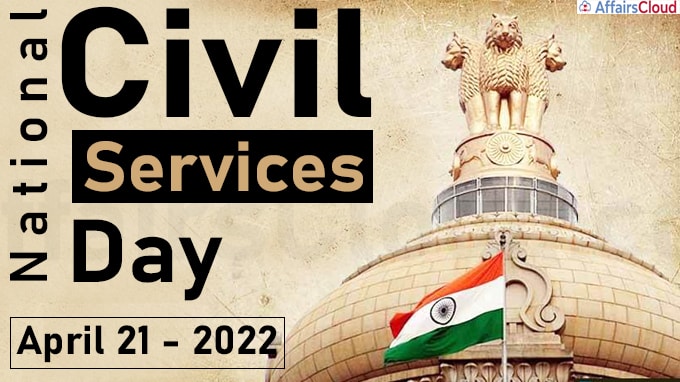Rama Krishna Sangem
Joining IAS (Indian Administrative Service) is the dream of every Indian youth. IPS, police services, IFS, foreign service occupy subsequent preferences among a score (24) of other All India Services in Group A and B for which UPSC (Union Public Service Commission) conducts annual recruitment. They form part of executive and considered third pillar – after legislature and judiciary – of our Indian democracy
April 21 is celebrated as Civil Services Day every year. This marks the day when India’s first Home Minister Sardar Vallabhbhai Patel addressed IAS probationers in Delhi on April 21, 1947. That means, 4 months before we got our Independence. Then, he termed the civil servants as “Steel Framework of India“. As he was called Iron Man of India, Patel must be fond of steel, a symbol of strength.
So, how strong are our civil servants or bureaucrats? How they shaped their role in governance and delivery of justice to people in the last 76 years of Independent India? How upright they can be, while discharging their duties, true to their call of conscience? These are the questions we need to address, before analyzing other emerging challenges they face in the fast changing world.
Constitution adopts British legacy
Our Indian Constitution simply adopted British era civil services which are known for efficiency and integrity, even though colonial in mindset. Even now, our previous generations recall how efficient were earlier ICS (Indian Civil Services) officials. They followed Victorian morality and imperial discipline while discharging their duties. Many British viceroys and governor generals insisted on bureaucracy serving people.
After Independence we changed the name to IAS, administrative service, reminding them that they should focus on day to day administration, leaving other domains to others – legislature and judiciary. Articles 308, 309, 310 and 311 of our Constitution talk about the presence of civil services and the mechanism for their recruitment and removal etc. Not much is mentioned about their overall purpose or motto towards society.
Old Joke
All of us are aware of this old joke. In a school, there are three students. The brightest one becomes a scientist, the bright and hardworking becomes an IAS and the last dud becomes a politician or even a minister. Now, the system is like this- the minister dictates orders to the IAS and the IAS controls the scientist. This is our Indian situation. Even UPSC has no answers to this problem.
Over the years, civil servants whether at the Centre or states, have become passive followers of the orders, rather than policies of the governments of the day. Frequent change of ruling parties and governments made their life miserable. If there are two opposing parties in power at the Centre and state, their life is hell. Especially, the IAS and IPS bear the brunt of political pressures.
We have seen recently how many IAS officers, thought known for their integrity, went to jail in some corruption cases, because they couldn’t say No their political bosses. Investigating agencies easily pin point civil servants, if something goes wrong. They are easy targets, because there is more evidence against them at the level of implementation of a political decision. Because, our political bosses – PMs, CMs or ministers – mostly give oral commands to officers.
Since recently, our civil servants are asking for written instructions from political bosses, if they had to do something beyond the rules. This is good. At the same time, we must keep in mind the complaint of politicians – that bureaucrats won’t keep the public good in mind. Or that they just follow the rule book, not the well being of people. Sometimes, rules come in the way of larger public good.
There are some civil servants who are known for their their service approach. They are remembered long after their retirement – like late SR Sankaran, IAS or Smarjit Ray, IAS. We find many such officials who worked in rural development departments. It may not be appropriate to mention their names here, but even now, we have many bright and dedicated civil servants in Telangana, AP and at the Centre.
Emerging Challenges
The role of civil servants is becoming complex in the fast changing global and technological scenarios. That is the reason, most technologists and domain experts complain that our civil servants are not qualified enough to regulate emerging fields – like Artificial Intelligence or new educational or medical systems. That is a reason, whey the present Modi government brought in a lateral entry system at the joint secretary level at the Centre.
In the US administration, career bureaucrats and specialists, who come and go with the presidents, are almost in equal numbers. Just as any other professional in today’s world, our civil servants too need to update their knowledge on a regular basis. They must be accessible to general public, just as they are to their political bosses. They must listen to public and understand problems, every day. That can be their new pledge this April 21.



